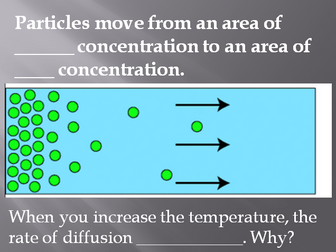
Villi and Absorption
This resource is primarily for high ability year 8 and 9's, however it can be delivered to GCSE students as there is an exam style question at the end.
The starter is revision of food, you can use whiteboards; the teacher chooses whether the students give a right answer or a wrong answer to each question. The wrong answer must be linked to the work, not just a random answer. The students loved this!
There is a GCSE style question at the end which takes literacy into account. Keywords are on a slide for students who perhaps struggle with literacy.
There is a model answer at the end that students can read out.
